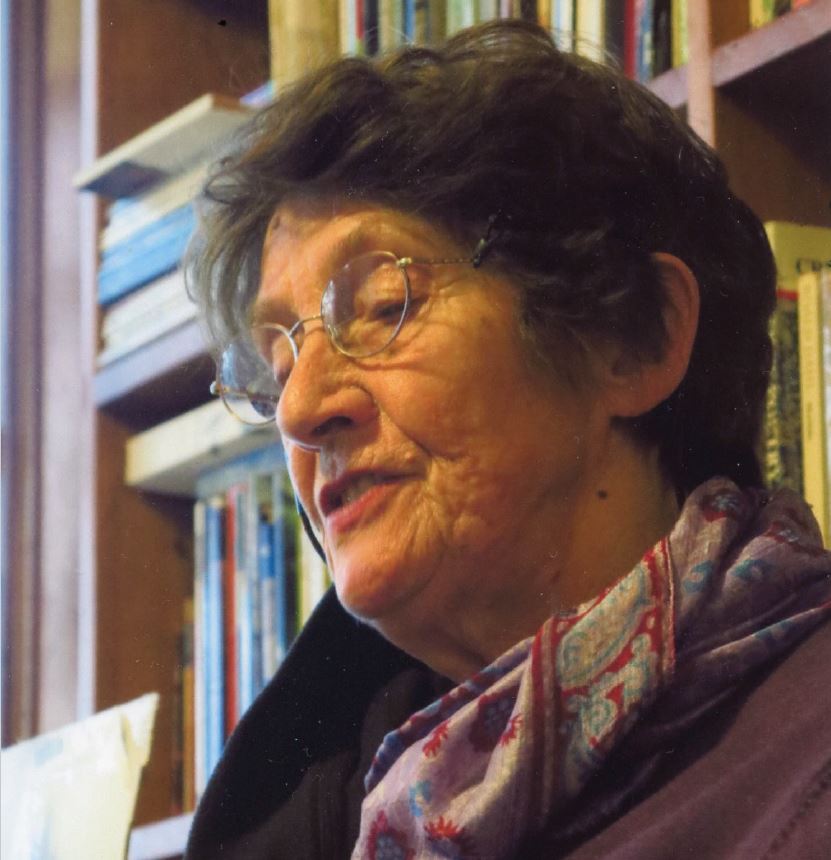head on
friday night
got wheels
koori boys
revvin’ t’ go
we cruise
the back roads
take the hotrod
t’ the dirt edge
of town
hit the gas
set the pace
on the stretch
bounce
a merc
metal screamin’
it’s 3 am
we’re in the zone
– blak power
flyin’
the commodore
lifts speed
takes a spin
wraps a pole
loses the game
deadly!

Vidya: Tell us about your artistic practice.
Brenda: I am a Wiradjuri writer and artist living in Sydney. I trained and practised for some years as a visual artist, but I have concentrated more on my writing since completing a Post-Graduate Certificate in Creative Writing at UTS in 1995. I have now written three poetry collections and my work has appeared in major anthologies and journals, including Australian Poetry Journal, Overland, Southerly, Westerly and Best Australian Poems 2013 and 2015 (Black Inc). My book Looking for Bullen Bullen was awarded the 2014 Scanlon Prize, (Australian Poetry). I am presently a mentor for Black Cockatoo, the Indigenous Poetry site at Verity La.
I enjoy working with emerging poets, helping them to craft their work towards publication in the on-line press.
What prompted this poem?
My young cuz who died in a road accident out in Blacktown, Western Sydney. He wasn’t racing but like so many young boys, he loved cars and speed.
This poem feels like it starts mid-flight – viscerally like we’re in the car – and then there’s the brutal landing.
Good, that’s the reaction I wanted: to capture the moment when these Aboriginal boys feel the adrenaline pumping. Real life is tough, but the car is one place where they feel powerful, able to take on the challenge of the race. Just for that night they feel invincible. Life is deadly, a wonderful game. Just for a moment failure and disaster are never an option!
This poem has such playfulness on such a difficult topic. How does your work navigate this?
My poetry is always political. Most of my poems are short in length. Many address the pain and dislocation of Aboriginal people living in cities today: the inherited blight of dispossession is evident in many of the continuing problems we face. I present concerns are for the Australian environment and the changes made since colonization. I am presently looking for a publisher for my manuscript Inland Sea.
The ‘playfulness’ is in the boys use of Koori street language. This is an artifice to bring the images up close and personal. The short lines dropping down the page give greater speed and urgency to the journey. As I see it, the role of poetry is to express the truth, distill ideas and beliefs. Language is a tool, which must be crafted to express mood, emotions and beliefs.
How does editing form part of your work?
Apart from occasional punctuation errors, I don‘t usually have to edit any of the work I have had published. I regularly attend a professional poetry workshop where we read and critique our work together.
Who are some poets you’re currently reading or commonly turn to?
I have always been drawn to late poets writing of our past struggles such as Oodgeroo Nunnuccal, Jack Davis and Lisa Bellear. There are also several writers continuing the fight for justice and recognition today, such as Ali Cobby Eckermann, Romaine Moreton, Jeanine Leane and Charmaine Papertalk Green. Sam Wagan Watson and Bruce Pascoe are high on my list.
At the moment I am reading DirtyWords by Natalie Harkin. She’s deadly!
About the author
vidya rajan is a writer, editor and performance-maker. she currently lives in melbourne and is a writer in residence at the malthouse theatre. you can get in touch on twitter.



